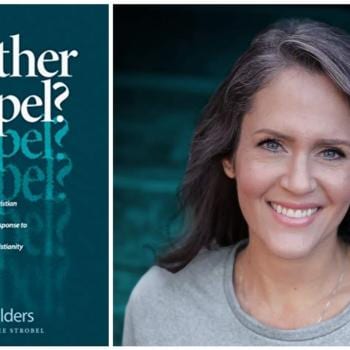
Trigger Warning: this will piss some people off!
Disclaimers:
By “evangelicals”, I am referring to anyone who believes they are evangelical.
By “progressive”, I am referring to anyone who believes they are progressive.
By “fundamentalist”, I am referring to anyone to whom this post applies.
Make sense…
Good!
With all of those qualifications out of the way, let us begin.
Recently, I had some conversations that reminded me fundamentalism comes in all shapes and sizes. I spend a great deal of time critiquing evangelicalism and the fundamentalism that often accompanies it. It is only fair that progressive fundamentalists be held to the same standard as conservative ones. Actually, I hope that one-day progressives will not be known for their fundamentalism, but their intellectual and social capabilities.
You may be wondering what fundamentalism looks like in a progressive world. Well…it looks almost exactly the same as it does for conservatives. It’s intolerant. It doesn’t approve of reasonable questions. It doesn’t allow itself to be examined and challenged. It requires its followers to adhere to strict criteria of irreducible beliefs whereby any deviation is seen as a betrayal. There are probably other criteria that could be mentioned, but for now, this will do.
For whatever reason, when people feel threatened, they often move from the middle to the polar regions of the religious-political spectrum. I believe the reason so many evangelicals are fundamentalists these days is that they feel threatened. There is safety in the extremes because, for many, there is familiarity and bonds with that position that they don’t want to lose. It takes work to maintain some form of middle ground.
The same is true for progressives. When they feel threatened, they too move toward their polar extreme. There is no doubt talking about issues of race and sexuality are two of those hot-button issues that quickly push some to the edges. It is my hope that this article can help mitigate that movement towards the edge by challenging progressives to think twice before reacting to those who might disagree with them.
The bottom line is that we have to be able to have conversations about these issues. We have to have rigorous debate, and we have to do so in a spirit of love, learning, and reform. If we are unable to do so, then very little, if anything, separates us from those whom we critique.
I recognize that many of the issues that progressives care deeply about are social in nature, which means that the ideas they are defending have victims; they have human beings who have been deeply affected by something. No doubt, that has merit to it. No doubt that is one reason I am a progressive Christian. However, if we truly believe that our behavior is in line with Jesus Christ, then we must also show the same love and compassion to others as he did – even those we disagree with. Think of those we disagree with as people most in need of Christ’s love.
I think we have a problem with being too intolerant. As progressives, we argue to our counterparts that they have to be more tolerant and yet, we often have very little patience for those who have questions, especially if they question our deeply held convictions. We can forget that people who are, by nature, critical thinkers, they have to ask questions – it is how they learn. For example, we should recognize that just because a person has a question about being nonbinary, that is not in and of itself a declaration of disagreement. But often, that is how we treat people when they have questions.
Perhaps one of the most significant problems within progressive Christianity is that we have to be careful with the words we chose to use. For example, not everyone who disagrees with a progressive view of “fill in the blank” is phobic or a hater. Progressives must learn to dialogue with people who disagree with them so that, at the very least, the other person can come to understand our perspectives – even if in the end if they still disagree. At least they have the right information.
The purpose of this article is not to condemn, but to draw attention to some of the problems that exist within our own ranks. I think we need to exercise more humility and understand that we have work to do. It is by doing this work that we will hopefully make progressive fundamentalism a thing of the past. We should exercise the same fervor in eradicating fundamentalism within progressive Christianity as we do in other forms of fundamentalism.
You can view my UNenlightenment YouTube Channel HERE
You can view my UNenlightenment Podcast HERE
You can follow me on FaceBook HERE













